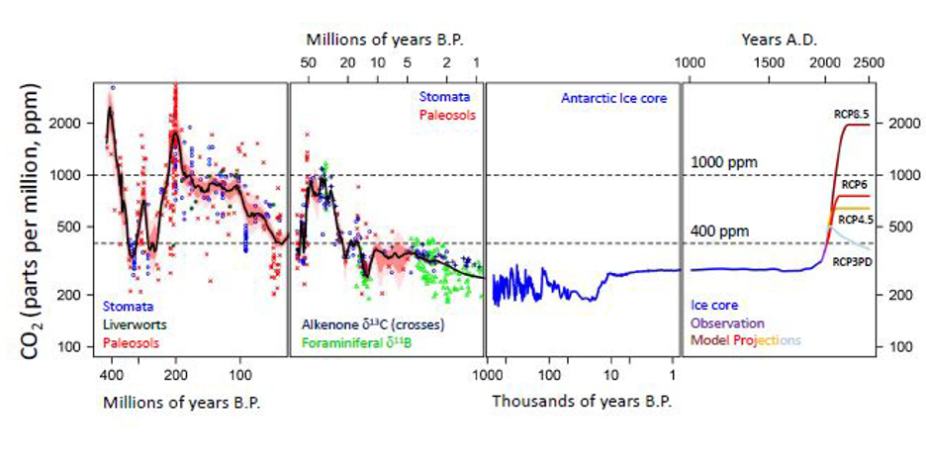PWG
The PWG is a consortium of scientists interested in modeling and understanding past states of the Earth system, allowing a long-term perspective on the nature of Earth-system change.
With members from universities and laboratories worldwide, and interests ranging from early Earth to the recent millennium, we conduct scientific modeling experiments to establish relationships between forcings and feedbacks for specific time periods, and to explore the transient nature of these responses.
Comparing model results to observational data is an important component of the PWG efforts. We also test model components developed by other CESM working groups and develop new capabilities that allow better assessment of model simulations against data. PWG workshops and meetings are open to the science community interested in past states of the Earth system; if you wish to attend future PWG meetings or stay connected with our activities, please subscribe to the mailing list.
One of the goals of the Working Group is to allow the community to address scientific questions about past states in Earth history using the CESM model. Refer to the online paleo resources for background on the CESM code and dataset modifications that may be necessary for simulations.
📊 We Value Your Input
PWG is co-leading the development of the next-generation water isotope-enabled CESM (iCESM) through an NSF funded project. We invite you to help shape this effort by sharing your experiences, needs, and suggestions. Your feedback will directly inform priorities, guide feature development, and strengthen community support. Take Our Survey (approximately 15 minutes).

Figure: CO2 parts per million, ppm: see Foster et al., Nat. Comm., 2017.
Simulations
Recent / Notable
- PaleoWeather: An Accelerated Scientific Discovery Project (ASD)
- PaleoPPE: A Suite of Perturbed Parameter Ensembles under a Wide Range of Temperatures
- Paleoclimate-Calibrated CESM2 and simulations (with FAQ and Diagnostic Plots)
- CESM2-CISM2 Transient Last Interglacial
- CESM2 Last Glacial Maximum
- CESM2 CMIP6-PMIP4 simulations for midHolocene and lig127k
- PlioMIP2 (CMIP6-PMIP4) simulations with CESM2, CESM1.2, and CCSM4
- CESM1.1 Last Millennium Ensemble Project
- iTraCE: isotope-enabled CESM1.3, 19ka to 11ka
- iCESM1.2 Deglacial Slice Simulations (21ka to PI with roughly 3ka intervals)
- TraCE21 Project, 21ka to present
- CESM1.2 Pennsylvanian (~300Ma) UMich, UOregon
By CESM version (all)
By Time Period (all)
Paleoclimate Co Chairs
- Jiang ZhutoNCAR-CGD, P.O. Box 3000, Boulder, CO 80307-3000
- Samantha StevensontoBren School of Environmental Sciences and Management, University of California, Santa Barbara, Santa Barbara, CA 93106-5131
- Ran FengtoUniversity of Connecticut, Computational Climate Change Lab, 354 Mansfield Road, Storrs, CT 06269